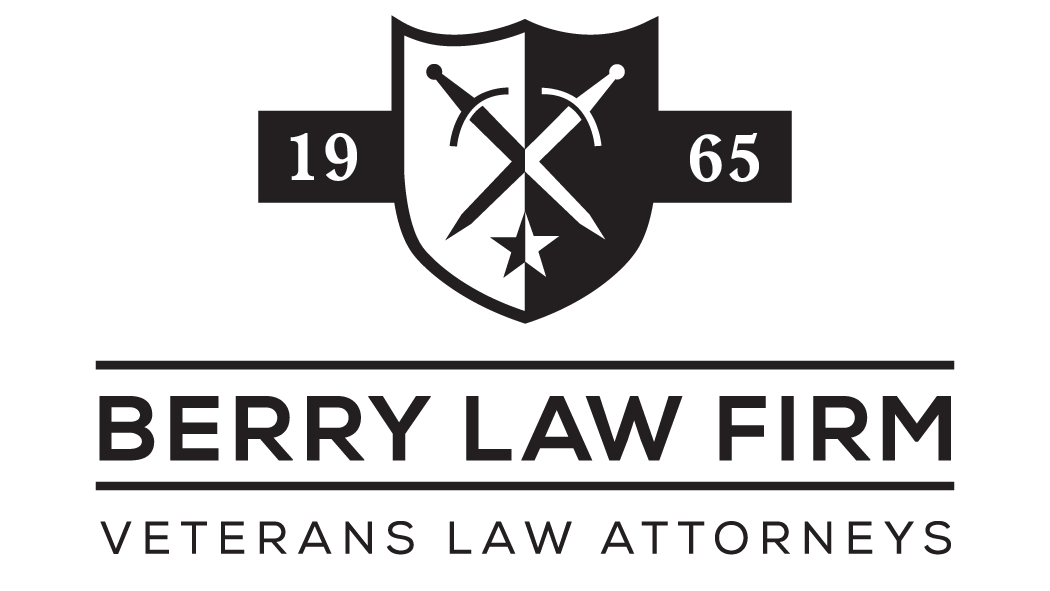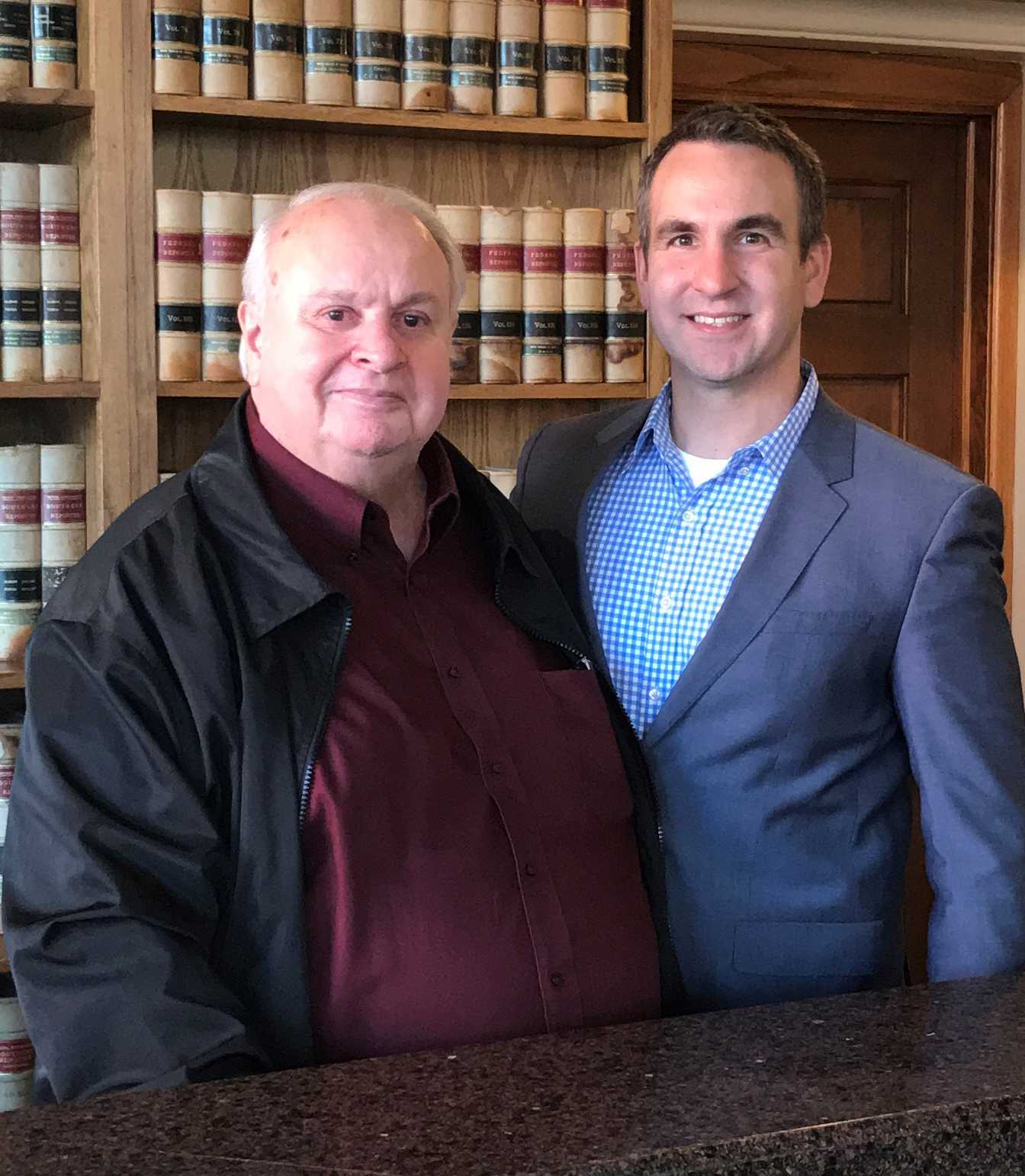
By John Stevens Berry Sr.
We at Berry Law understand that clients come to us so we can get them the compensation that they are owed.
We work very hard to do that, and we are pleased with our successes for so many of you. However, our concerns go beyond that. We care about you as human beings, many of whom are still hurting, and we often think of ways to make life a little better for you.
Lately, there has been a certain amount of “art therapy” for people who suffer from PTSD. For instance, there have been writers’ workshops in which veterans are encouraged to write poems, stories, or essays. This exercise can be healing to the veteran and the projects created are often very good. They help the veteran work through personal concerns, while writing, and they can entertain and even provide small road maps to recovery for other veterans!
We have always tried to make ourselves open to veteran clients who might write a letter for publication, or an editorial, and we now extend an invitation for personal stories that you may have written and wish to share with your fellow veterans.
Of course, the act of writing is often its own reward. It can clear things up for the veteran. It can make life easier and a little more pleasurable. And sharing takes it one step further. Stories can provide a kind of roadmap, to assist in negotiating a tough trail.
We do not know if many of you will want to contribute, and if a lot of you do, of course we cannot

promise to publish everything we receive.
In this issue you will find a poem written by one of our clients and a short story. We hope that you enjoy them, that you will benefit from them, and that, if you wish, you will send us your own writings.
In conclusion, I am including a poem I wrote over 45 years ago. It is not strictly about Vietnam, but you will notice how many Vietnam experiences work their way into the poem. You might be writing about a different experience, but a memory or insight from Vietnam may express itself. That can also be a good thing.
Anyway, I do not mean this as an assignment! We just want you to know that we appreciate you for the unique individuals that you are, and we are always open to reading your writings and thoughts. For those of you who are so inclined, try it and enjoy it!
By John Stevens Berry Sr.
If not the stunning grace of unicorns,
These miracles as rare: In Gia Lai
A small boy walks on water. Who’s to say
The miracle is lessened by the horns
Of that cool water buffalo beneath?
Insistent Presence, leave him room to pray!
Yet smartly field a thunderbolt gone stray
And sometimes, at my father’s grave, a wreath.
Let him move, as I move, through shatter- cane
In this Nebraska heat. Or murderous rain
In rice fields, under fire, alive and wry.
Or if a daughter, may You fortify
Her vision, that she see both truth in thorns
And loveliness, more rare than unicorns.
By Robert Rispoli
Army Veteran, Purple Heart and Combat Infantry Badge Recipient

I was nine years old when we moved into a neighborhood of new homes and new families in 1955. Just to east of us, a narrow irrigation ditch with huge cottonwood trees stretched into the hot, blue sky of Arizona, where our parents let us ride bikes from the time breakfast was finished until the twilight, when they would call for us across the streets and sidewalks. It was a wonderful time; the best of times.
Everyone – every parent, every older sibling looked after us. We were never far from a watchful eye or a caring glance. The rules were very clear: Stay out of trouble, and never leave your friends. Look out for them. Treat them like family.
At home, in the neighborhood, at school, and even at the local drugstore, we had advocates enforcing the adult rules with fairness and justice, dispensing wisdom acquired on the battlefields of WWII, or on the home front supporting the War Effort.
My Mother, a Navy Wave, had worked in Washington, DC. She was from a town in Oklahoma so small you couldn’t find it on a map. As the daughter of a Lutheran minister, she worked on the local farms, and spent long hours at home cleaning, cooking meals, and maintaining her studies. She was a good listener, and always had a warm cup of coffee waiting if you needed to unload your daily stress or something more.
My Father, an Infantry Officer, never talked about his war experience in North Africa. He spent his days involved in his community. He raised thousands of dollars for charity, dedicated his experience and background to community groups, and quietly, without fanfare, became a voice for equal rights.
From these American roots, from this small town, from these wonderful people who found money for summer little league uniforms and spent countless nights dedicated to community issues, from these advocates, from these leaders, I learned the single most important principle that has guided my life for seventy-one years: JUST SHOW UP!
If only it were that simple in this day of overreaching technology. One of my idols growing up was Paul Harvey, an extraordinary radio commentator who everyday gave us “The Rest of the Story”. What I most clearly remember from his thousands of broadcasts was something he shared towards the end of his career.
He opened by talking about the challenges people everywhere face at home and abroad, and went on to describe all the shortcomings that we in America had. Then paused before continuing with what I have always remembered and treasured: “Every day, hundreds of millions of Americans get up, go to work, provide for their families, attend the church of their choice, coach little league teams, contribute to their communities, volunteer, perform heroic acts, open their heart, and share the resources of their lives…They Just Show Up”.
As a Disabled Vietnam Veteran, I am so grateful to the Berry Law for Just Showing Up. We have been together for over a decade and it takes me back to my small town, and those who without ever saying much looked after us with fairness and justice. Who could ask for more? Not me.
Lorraine worked at the VA for 37 years before joining our team.
By: Lorraine Chastril
To establish service connection for a disability or death from use of tobacco products, the following factors must be present:
1. Service-connected disability caused the Veteran to use tobacco products after service;
2. The use of tobacco products after service is determined to be a substantial factor in causing or aggravating the disability as secondary or in causing or contributing to death; and
3. The additional disability or death would have been prevented but for the use of tobacco products caused by service-connected disability.
For example: A Veteran is service-connected for PTSD and claims secondary service connection for tobacco-related emphysema. He states that he started smoking cigarettes after service because of anxiety related to PTSD.
Let us know if you have any questions concerning this matter or would like to file a claim.
Poem from A Wounded Angel, a collection of selected short stores and poems.

By Richard Craig Hurt
Navy Vietnam Veteran
The winds came swirling through the night
Before the break of dawn
trees twisted from their roots
in seconds they were gone
roofs were lifted from their place
carried far away
homes were flooded everywhere
in just a single day
In the depths of trouble
the best from us arose
the memories of that fateful storm
may never fade or close
Through all the pain and suffering
survivors had endured
found a silver lining
friendships were ensured
Our monthly newsletter features about important and up-to-date veterans' law news, keeping you informed about the changes that matter.